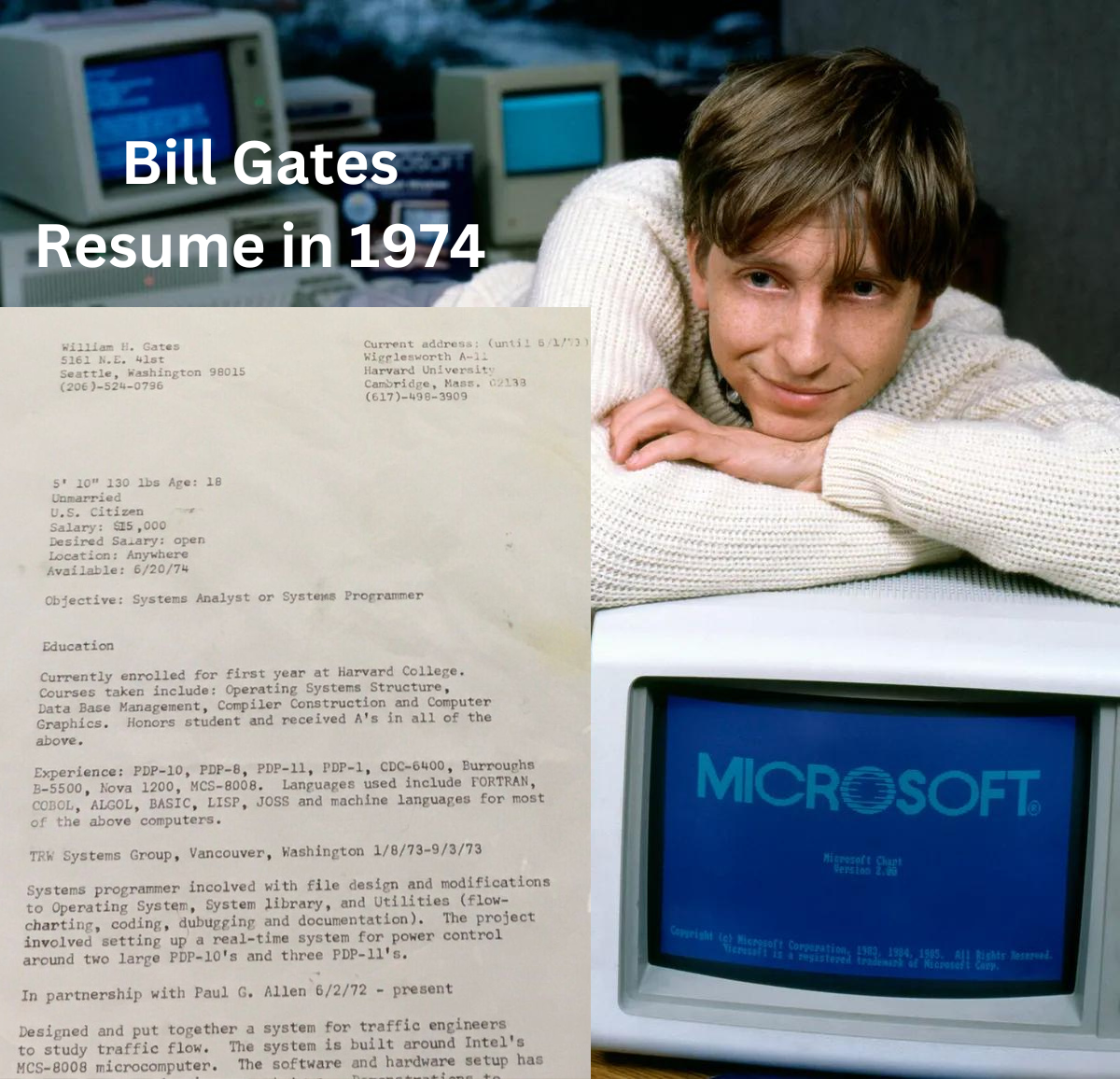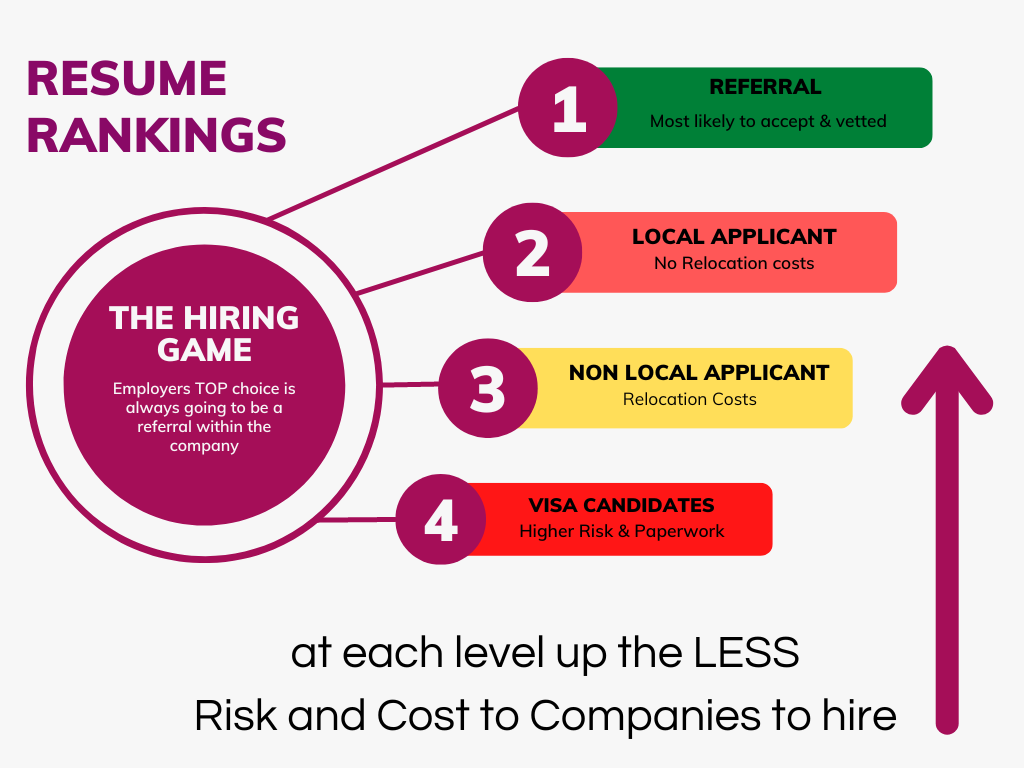- Home
- Software Engineer Resumes
Strategies and Tips for Crafting
the Perfect Software Engineer Resume
What is the Purpose of a Software Engineer Resume?
It's a MARKETING DOCUMENT to help you land an interview, nothing more. It is NOT a list of all your experience or all your skills you've done over the years.
“The goal of a resume is to get you to an interview for that position with a recruiter or hiring manager from a specific company. That’s it—nothing more, nothing less. It’s to get your foot in the door. It's not a goal to share your complete work history or represent everything you did as accurately as possible.”

Even if you’re a Senior Engineer, be sure to get the resume fundamentals right. To illustrate a simple analogy, I’ve always been athletic but for whatever reason, I couldn’t play tennis well AT ALL. So, I took a tennis class in college (yes to meet girls too) and the first day of class the instructor covered how to hold a racket. Was thinking “jeez, everyone knows this!”. Well, It turns out … I’ve been holding the tennis racket WRONG my whole life. No wonder why I sucked at tennis!!!
So if you’re NOT getting the response you want for your resume, be sure to hit the grammar, punctuation and for the Love of God KEEP IT UNDER 2 PAGES! (Recruiters and tech interviewers won’t even read past the 2nd page
Image of Bill Gates's resume in 1974. Nobody cares about weight, height and marital status - focus on IMPACT you've had
DO YOUR RESEARCH (and Define Your Perfect Image)
No matter what you do you have to customize the resume for each position you apply (or ideally cut in line with a referral).
For instance, say you’re applying for a software engineer role at Google. The first step is to create your narrative of the type of developer you are.
This is an Example of How You Beat the Competition
You get really specific on your work, the impact you’ve had, and what you will bring to the table for the companies. (most of us are afraid to get specific as we're afraid to exclude ourselves).
- A strong foundation in computer science. Google wants candidates who can master algorithms and data structures. Include any relevant projects and work that shine in these areas
- Experience with relevant search technologies. Google is always looking for engineers who are proficient in the latest technologies. So go include experience with languages, frameworks, and tools relevant to the role you're applying for.
- Yep, the role requires strong attention to detail: As a software engineer, you'll be responsible for writing code that is efficient, scalable, and maintainable. Find ways to Show that you have an eye for detail by including specific examples of how you've applied these principles in your work.
- Awesome problem-solving skills. Be sure to highlight any projects or challenges you've tackled that required you to use your problem-solving skills.
- Every high-impact software engineer requires outstanding communication skills. You’ll be working in teams, impacting stakeholders and users at scale. Show you have experience collaborating and communicating technical information.
This is just ONE example - as you can see this is how you stand apart from the hundreds of others applying for the same position. You've done your homework understanding what that company wants.
SOFTWARE ENGINEER RESUME FORMAT & STRUCTURE
Where you are in your career will give you the overall structure. For instance, if you’re a college grad it’s going to look different than the stellar industry veteran. It’s all about POSITIONING yourself for maximum chance of success of landing the interview.
The structure for every resume is the same:
- Experience - list of past employment positions that showcase the skills and experience
- Technologies - list of technologies you've worked with
- Work History - in reverse chronological order list of jobs you've had
- Other - Stuff that help you stand out such as certifications, hobbies, or language fluency.
THE #1 DUMBEST SOFTWARE ENGINEER RESUME MISTAKE
I've seen hundreds and hundreds of resumes over the years. While to err is to be human, but NOT when it comes to YOUR resume. Let others make the obvious silly mistakes like spelling and grammar. There's ONE mistake i see so common in most resumes I see when interviewing (or weeding out candidates) is this:
They do not include the RIGHT details in their work experience. Employers want to know exactly what you did at your previous jobs and the IMPACT you’ve held. So - be 100% sure to include details about the projects you worked on, the technologies you used, and the impact you had. What what the end result from the applications you built!! Always try to put a number behind it as it makes it more credible. (if you don't know a
UNDERSTANDING THE SOFTWARE ENGINEER RESUME RANKING GAME
Nowadays, getting your first job as a self-taught developer means having a solid LinkedIn and GitHub profile with a solid portfolio. Bonus points for having other social media platforms down and a website sharing what you know - when employers find you, you win!
A hiring manager's goal is to hire people who are qualified for the job as fast as possible. The recruiter’s top job is to help the hiring manager in this process. If there’s sizable number of resumes with similar skill levels, how do recruiters prioritize resumes?
Most of the time it looks like this:

- Referrals. The recruiter and hiring manager almost always read through resumes that come through employee referrals in depth. While the hiring manager might have a policy of not moving forward with referrals who need a visa or relocation, this is also the most likely place where exceptions could be made, especially with a strong referral.
- Local candidates. Recruiters and hiring managers perk up when seeing local “candidates. Local means no paperwork to start, and no relocation is needed. There’s also little risk of a candidate who accepted an offer backing out due to relocation concerns.
- Candidates not needing visas. In these cases, once an offer is made, there's little paperwork needed, and there won't be visa-related delays for the person starting. They might need to relocate, but relocation would not add any uncertainties to the starting date.
- Candidates needing visas and relocation are usually people from abroad. This type of hire is the most time- and cost-consuming for the company. A company needs to be ready to wait for a longer visa process to go through, and pay for the additional costs, like relocation, in these cases. These kinds of hires are usually reserved either for positions that are hard to fill, or for cases where the company needs to hire a large number of people. Someone needing a visa and relocation might mean an additional couple months to start the job, with additional relocation and visa costs.
In short, the answer is to ALWAYS try to apply to a company you really want to work for with referrals!